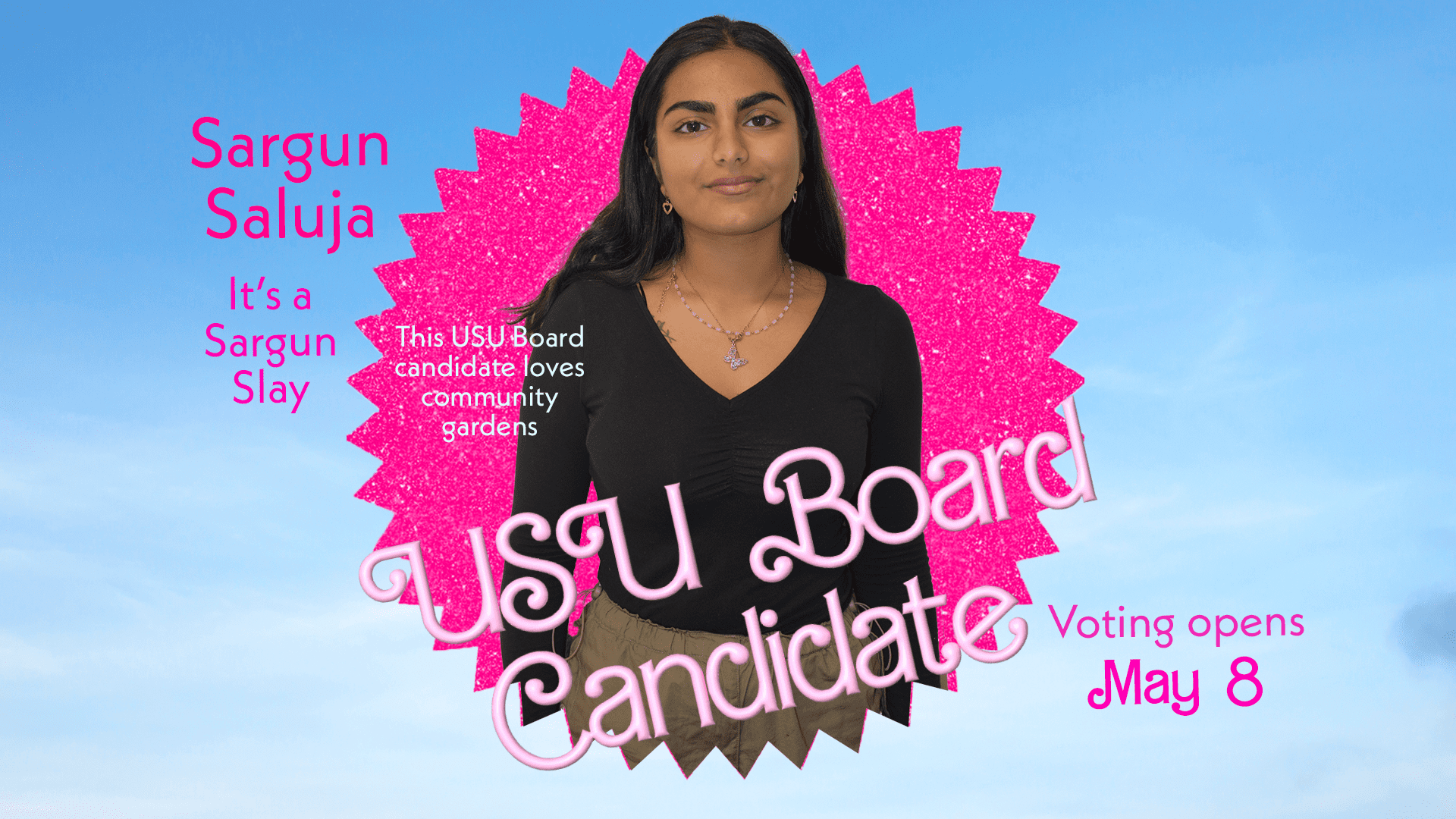Slogan: It’s a Sargun Slay
Colour: Hot Pink
Quiz Score: 22%
Faction: NLS
Favourite USU Outlet: Courtyard
Sargun Saluja, a first year Science/Law international student and member of NLS (National Labor Students), is running for USU Board. Saluja is the first NLS candidate for Board since Ruby Lotz in 2020, and represents a progressive campaign aimed at “amplifying the voices of [marginalised] communities.”
Saluja’s policies are broadly organised around welfare for international students, ethical service provision, and environmental protection. As a first year, Saluja pledges to advocate for these policies from a perspective that foregrounds “youth affairs”, arguing that this sets her apart from older students on Board that may not relate to those arriving at USyd.
In terms of Saluja’s policies for international students, she admirably wants to reduce the “culture shock” and “isolation” faced by students arriving in Sydney. She spoke to Honi about the “gap” that the pandemic opened between domestic and international students, and how proper integration is necessary. To achieve this, Saluja suggested creating “mentoring workshops” hosted by older international students for younger international students. She also spoke to improving employment services for international students, though when asked practically about how she would achieve this — given that the SRC already has this service in place — she could only vaguely suggest a push for “awareness” and “collaboration” with the SRC.
Saluja’s service provision policies are largely centred on Foodhub, where the SRC and USU distribute free essential goods to students in need. In her policy document, she stresses Foodhub’s essential role in supporting the cost of living crisis facing students. Saluja said that she would like to expand Foodhub for “low SES students” and “international students, even though Foodhub precisely exists for these student demographics: she also wants to increase awareness surrounding Foodhub, stock Foodhub with fresh produce from a new “community garden” on top of Wentworth, allow for more “flexible timing” for Foodhub volunteers, and for the USU to pay these students. However, Saluja was unable to specify how, as a Board Director, she would practically achieve these goals.
Saluja also promises reform to the USU’s investment portfolio, divesting from fossil fuels and “polluting industries”. The USU has already pledged to divest completely from the fossil fuel industry by June 30. Saluja instead told Honi that she intends to “lobby for introducing smaller businesses” instead of unethical investments; when pressed, she was unable to specify what she means by this, other than stating that the USU should invest in “multiple ethical organisations”.
In her quiz, Saluja scored 22%. She demonstrated a worrying lack of institutional knowledge: she was unable to name any executive member of the USU Board bar its President, Cole Scott-Curwood, whose faction and last name she did not know; further, she was unaware of the USU’s financial situation, society publications, or revues. Her higher education knowledge was insufficient: though able to explain the “40:40:20” model of teaching, Saluja could not identify the University’s Provost, Australia’s state and federal Education Ministers, or the National Union of Students (NUS) and its President — despite the fact that Bailey Riley is a member of her own faction. When Honi asked her to account for this, she said that she has “met Bailey Riley personally” and just forgot her name. All of these gaps are perhaps explained by the recency of Saluja’s arrival at USyd, though to competently serve on Board, she would need to rapidly hit the books. Saluja appears to also be at odds with NLS’ historical practice of members binding with their caucus’ vote: she said that NLS would not bind her decisions on board, and that she “has [her] own perspective and would value it more.”
That being said, Saluja was forthright and well-meaning with Honi, her policies are fundamentally progressive, and she displays a clear desire to improve welfare on campus, particularly for international students. It is up to voters to decide whether Saluja’s activist platform outweighs her lack of institutional knowledge, and merits a place on Board.





